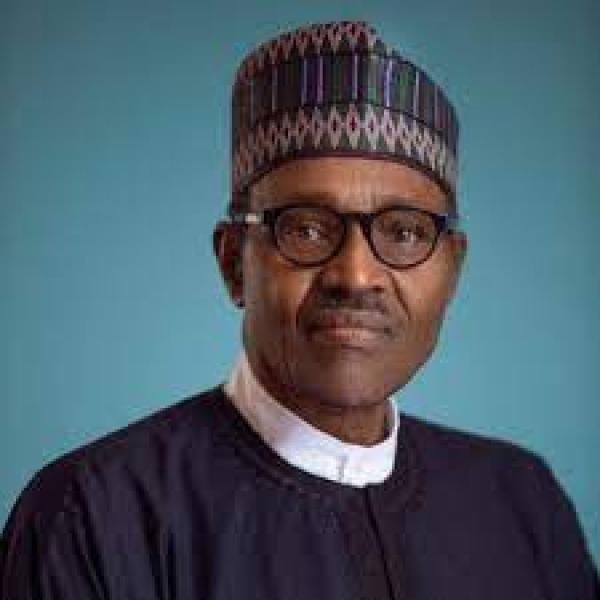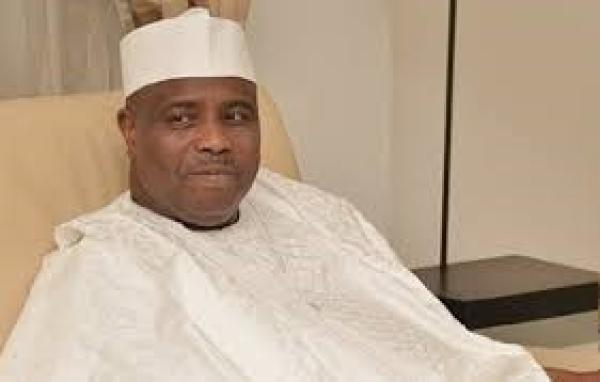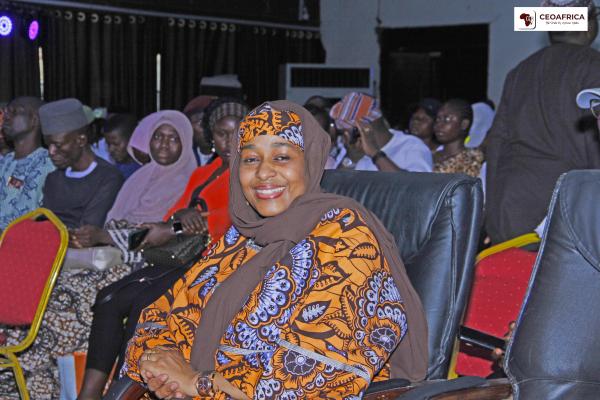
Thursday, 17th June 2021: The Federal Government on Wednesday said it was compiling a list of Nigerians lifted out of poverty by the administration of President Muhammadu Buhari.
The National Coordinator of the National Social Investment Programme, (NSIP), Umar Bindir, who gave this indication in an interview in Abuja, stated that the agency would soon begin an assessment of the programme to know those it had lifted out of poverty.
Bindir said this as economic experts, in separate interviews with CEOAFRICA, faulted government on the number of people it had lifted out of poverty.
They also warned that increasing poverty in the country would worsen insecurity.
In his speech on Saturday to mark the June 12 Democracy Day, Buhari said 10.5 million people, including farmers, small-scale traders, artisans and market women had been lifted out of poverty by his regime.
But three days after Buhari made the statement; the World Bank on Tuesday stated that rising prices of goods had pushed seven million Nigerians into poverty.
The World Bank made the statement as the National Bureau of Statistics on Tuesday said inflations dropped by 0.19 per cent in May, despite the public outcry about the high cost of basic items such as food and drugs.
But on Wednesday, the Federal Government said the NSIP had had positive impacts on its beneficiaries.
The National Coordinator of the NSIP, Bindir, said that the agency had started compiling names of citizens lifted out of poverty through the scheme.
The NSIP, which was established by the Federal Government in 2016, is aimed at tackling poverty and hunger across the country.
Its components include the Conditional Cash Transfer which supports people within the lowest poverty bracket by improving nutrition, increasing household consumption and supporting the development of human capital.
According to Bindir, “Your request has to do with the impact assessment reports. But first of all, we have to deliver. In the development work, you don’t just lift somebody out of poverty just because you have given him N30,000 monthly for six months or more.
“It depends on the person too. If somebody is not prepared, he goes to school and doesn’t read or ginger himself or spend time to upgrade himself, there’s no way you can lift that kind of person out of poverty. And there are many in this category. We just take our chances.
“But for the impact assessment report, as we speak, we are engaging independent monitors to actually go with tablets to capture exactly what you are asking for.
“Every single individual, who has benefitted from the NSIP, whether a child in the school down to the people who are attached to one form of work or the other (will be captured).
“We will find them, talk to them, get their opinions and see what they are doing and then provide a detailed report that will come out to say that yes, 10 out of 1,000, for instance, are out of poverty, or none is out of poverty, or all are out of poverty.”
Asked when the assessment report would be released, Bindir stated that the monitors were assigned the task this month and that their first report should be out in three months time.
He said, “The independent monitors are hired for one year, but every three months they will submit the report. So they are now going to start in June and by July, August, September we will expect a report in our office, to see exactly the impact of these programmes on Nigerians.
“But when you go to the school feeding programme, the objective is to attract children to come to schools and we call that increase in enrolments. And I can authoritatively tell you that enrolments since 2016 have actually increased in most of the schools.”
Nigeria’s rising poverty will worsen insecurity, economic instability – Experts
In separate interviews, economic experts said the rising poverty level would have more adverse impacts on the economy and further worsen the security challenges in the country.
They said the Federal Government’s figure on people lifted out of poverty was not reliable.
An economist and former President of the National Accountants of Nigeria, Dr Sam Nzekwe, in a telephone interview, warned that the increase in the level of poverty would be followed by increased frustration, higher unemployment and criminal activities which would further worsen the state of insecurity in the country.
He said “Frustration will become the order of the day, when you don’t have money to feed your family, you will get frustrated. Social vices will increase. The poverty will make more people to want to join armed robbery and all these criminal groups. As a result, the country will not have rest as we will keep on fighting social vices and other violent practices.
“So that will be the direct impact. It is going to create unemployment, we already have a very large army of young people who are unemployed, so with this, you bring more people into unemployment levels so that is what it is. So, it becomes very difficult to manage these social vices.”
Nzekwe explained that lack of funds might force many youths to drop out of school, adding that this and other highlighted factors will hamper economic growth.
He stated, “And then a lot of people will be forced to drop out of school and when they drop out, the teeming population of youths that we expect to be rulers of Nigeria tomorrow will be out of school. So when you don’t have youths in school, how do you move the economy to the next level?
“So the economy will not grow; it will become regressive; it goes one step forward and two steps backwards. And you can see what insecurity is doing. In the agricultural sector, you can’t go to farm. You can see the impacts. With poverty, the economy will be messed up,” he said.
A Professor of Economics and Chairman of the Foundation for Economic Research and Training, Prof Akpan Ekpo, in a separate interview, admitted that increasing poverty posed a significant number of dangers to Nigerians.
He noted that there would be greater hunger, with more people reluctant to work, which will lead to lessen production output.
Ekpo said, “Dangers are many if we have worsening poverty. It means the economy is unstable with a lot of crises. There will be hunger and anger in the land.
“Poverty in Nigeria is very high. It is not good for the economy. We are losing a lot of manpower, meaning that we producing below optimal output.”
Ekpo added that with increasing poverty and unemployment, people could be easily recruited into terrorist groups, which would further worsen security in the country.
He said “With high poverty, it is easy to recruit unemployed people into terrorist groups such as Boko Haram. Poverty is often linked to employment, and those unemployed become recruited into such groups, and that will worsen the insecurity crisis.”
He advised the government to work on implement existing policies to ensure poverty is reduced to its minimum.
“It is good for the country to reduce poverty to the barest minimum. For example, the government should implement the poverty initiatives put together by the president so that we can at least move close to Buhari’s target of lifting about 100 million Nigerians from poverty in 10 years,” Ekpo explained.
A professor of Economics at the University of Benin, Hassan Oaikhenan, said the government should address the problems facing Nigerians.
He stated, “What I do know from what we can see around us is that the claim by the Federal Government to have lifted 10 million Nigerians out of poverty is neither here nor there. I can sense a falsehood, something made to fulfill all political righteousness.
“I think there is a need for the government to honestly address and confront the problems facing Nigerians because that is why they were elected.”
Adi also warned that increasing poverty would worsen insecurity in the country.
A professor of Economics at the Olabisi Onabanjo University, Ogun State, Sheriffdeen Tella, said the statistics stating that 10 million Nigerians were lifted out of poverty by the government was politicised.
He stated, “The economic situation does not indicate that poverty has reduced in the country. That statistics is more of a political thing than the reality on ground. If we say the economy is picking up, it is very slow. All the fundamentals are not indicating that poverty level has been reduced.
“I am expecting the National Bureau of Statistics to show the reality on ground in terms of the situation for this month. The international community has its own way of collating its statistics, and it is more realistic to what is on ground than what our government is saying. I think the international statistics of the World Bank is more realistic.
“Government has to show that it is doing well, but the reality on ground does not show that the economy is doing well. With the issue of the herdsmen sending people out of farms, you cannot say the country is doing well.”
Tella also said there several dangers concerning the increased poverty. He stated there would social unrest including insecurity with the high level of poverty.
“If people are are engaged in one job or the other, they won’t be engaged in civil unrest. That is when you would say the economy level is going up. The government has to do something quickly to improve the level of employment. They should ask farmers to go back to their work by ending the excesses of bandits,” he added.






















